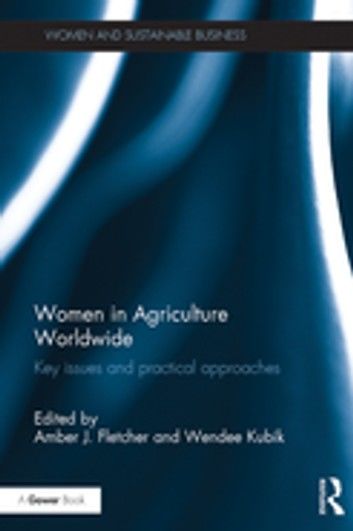Over the past two decades, existing documentation of women in the agricultural sector has surveyed topics such as agricultural restructuring and land reform, international trade agreements and food trade, land ownership and rural development and rural feminisms. Many studies have focused on either the high-income countries of the global North or the low-income countries of the global South. This separation suggests that the North has little to learn from the South, or that there is little shared commonality across the global dividing line.
Fletcher and Kubik cross this political, economic, and ideological division by drawing together authors from 5 continents. They discuss the situation for women in agriculture in 13 countries worldwide, with two chapters that cover international contexts. The authors blur the boundaries between academic and organizational authors and their contributors include university-based researchers, gender experts, development consultants, and staff of agricultural research centers and international organizations (i.e., Oxfam, the United Nations World Food Program). The common thread connecting these diverse authors is an emphasis on practical and concrete solutions to address the challenges, such as lack of access to resources and infrastructure, lack of household decision-making power, and gender biases in policymaking and leadership, still faced by women in agriculture around the world. Ongoing issues in climate change will exacerbate many of these issues and several chapters also address environment and sustainability.
This book is of great interest to readers in the areas of gender studies, agriculture, policy studies, environmental studies, development and international studies.












